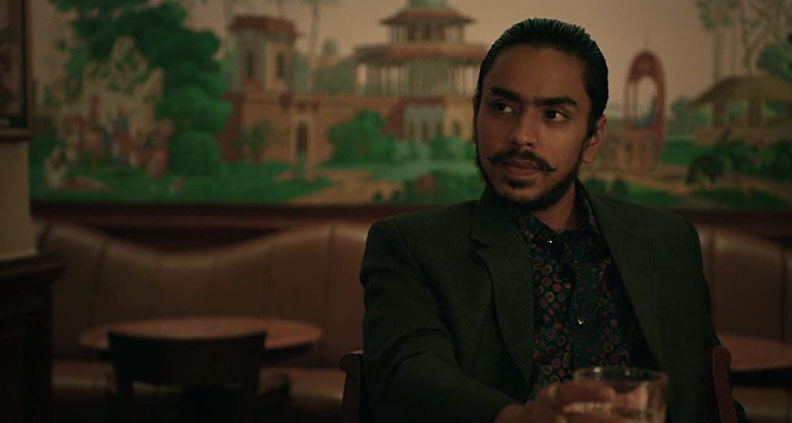Someone We Watched: Ramin Bahrani – The Price to Be Paid
Each year, the Film Independent Spirit Awards give the Someone to Watch Award to an emerging filmmaker of singular vision. In this column, film critic David Bax revisits some of the grant’s recipients to see how their work and careers have continued to develop.
***
Watching a Ramin Bahrani movie feels how I imagine it must to be a method actor preparing for a role. So immersive and tactile is his filmmaking that, by the end of Chop Shop—the film that won him the Someone to Watch Award at the 23rd Film Independent Spirit Awards in February of 2008 and also picked up nominations for Bahrani for Best Director and Michael Simmonds for Best Cinematography—I felt like, if dropped off in Queens with nothing to my name, I could probably earn some dough by buffing scratches out of cars, selling bootleg DVDs and, if desperate enough, snatching a purse or two.
The thing is, I’m fortunate enough in my life not to need to do these things, as is, presumably, most of the audience for the festival-fave, critic-approved movies Bahrani tends to make. So it’s particularly remarkable that, unlike most movies about poor people but seen by the affluent, his films avoid condescension.
However, by the time we get to his most recent release—last year’s Spirit Award nominated The White Tiger—a mere lack of condescension is no longer enough, with Bahrani graduating to more pointed attacks on his too-comfortable viewership.
Chop Shop is Bahrani’s second feature, after 2005’s Man Push Cart, as well as his second to tell the story of a young striver scraping by on New York City streets. This time, the emphasis is on young; Ale (Alejandro Polanco) is only 12-years-old, living without a home when we first meet him. But soon he maneuvers his way into an off-the-books job at a body shop and a room above the garage for him and his older (but not considerably older) sister to live in.
Bahrani doesn’t paint this new opportunity and situation as a stroke of luck but as the result of Ale’s unstoppable savvy, his knack for finding an angle. In the first scene, when Ale is denied a day-laboring gig, the man doing the hiring hands him a few bucks for breakfast out of pity. Instead, Ale uses it to buy candy to resell at a markup to passengers on the subway. Ale’s tragedy, waiting for him in a way we can see but he can’t, is that, despite all this, he’s not quite as cunning as he thinks he is. Chop Shop doesn’t flinch from the hurt and disappointment that are visited upon Ale but it doesn’t give up hope either.
After winning the Spirit Award, Bahrani kept on his already established path but instituted minor changes. 2008’s Goodbye Solo, about a Senegalese cab driver, continues his focus on those scrambling and jockeying on the lower rungs of the economy, but moves the action from hectic New York to the less urban Winston-Salem area.
2012’s underrated At Any Price goes even more rural to the Iowa farmland and features Dennis Quaid as Bahrani’s first ever white protagonist. 2014’s 99 Homes continued the trend of recognizable names in starring roles and delved under the headlines of the housing crisis, featuring Andrew Garfield as a man trying to buy back his foreclosed house through increasingly unscrupulous means. And in 2018, Bahrani took a departure, directing an adaptation of Ray Bradbury’s Fahrenheit 451 for HBO (admittedly, I missed this one.)
The White Tiger, made for Netflix and eventually nominated for a Best Adapted Screenplay Oscar, finds Bahrani, in many ways, back in the saddle. His filmmaking is still restless and propulsive; even though it’s over 40 minutes longer than Chop Shop the breathless pacing that aids in his immersive filmmaking keeps up and never gets tired as it follows Balram (Spirit Best Male Lead nominee Adarsh Gourav) from village teashop worker to driver for a wealthy family to, eventually, a fate simultaneously darker and more wonderful.
But, in comparing Chop Shot and White Tiger back-to-back—jumping 14 years in-between—some stark differences stand out, even apart from the relocation from America to India. Balram narrates from the near future, giving him a sort of omniscience and, thus, more self-awareness than Ale the in-the-moment 12-year-old. The ability to place his situation and struggle within a larger economic framework allows Balram to comment knowingly on the way the world works.
Chop Shop requires that we extrapolate a disapproval of the predatory capitalism that keeps smart, capable, industrious kids like Ale from succeeding. With The White Tiger, on the other hand, Bahrani is sick of being diplomatic. It’s not so easy to miss the point when Balram compares most people to roosters in a cage, waiting to be slaughtered.

Chop Shop had one of those abrupt endings that are, it’s true, somewhat common in brief, slice-of-life indie movies. But it was properly motivated, a nod to how quickly things can change or be forgotten in the mind of a child. The White Tiger builds to a magnificent crescendo, the story catching up in its final moments with Balram the narrator, reveling in what he’s done with his life.
In a way, Balram’s success as an adult is what we hope awaits Ale after that final, sudden cut. But, in our imaginations, we are spared seeing what he’d have to do to get there. Despite the inclusion of a prostitution storyline and a whole palette of cuss words, Chop Shop maintains some of the innocence associated with its protagonist’s age. Ale is loyal to his sister where Balram eventually abandons his family almost completely, putting himself first exactly as his grandmother predicts. With the possible of exception of its “Yep, that’s me. I bet you’re wondering how I got myself into this”-type freeze frame opening scene, there is nothing cute about The White Tiger. I mean, even the moment following the freeze frame results in the death of a child.

When Ale scams and steals, we forgive his minor moral compromises because he’s essentially a miniature version of the man shoplifting a loaf of bread to feed his family. But Balram challenges us, trying to see how far we’ll extend that same justification as his actions start to meet the level of his ambitions. If Chop Shop is a portrait of humanity blooming in harsh conditions, The White Tiger adds to that a moral relativist litmus test. Both are great films but, oddly, it’s the one with the happy ending that may leave you feeling worse about yourself.
Other nominees: Ronald Bronstein, whose provocative SXSW Special Jury Prize winner Frownland was eventually released by Factory 25, although his greatest notoriety in the past few years has come as a close collaborator of the Safdie brothers, serving as co-writer and editor on Heaven Knows What, Good Times and Uncut Gems; and Lee Isaac Chung—whose feature Minari last year requires no further introduction—for his Rwandan-set neorealist drama, Munyurangabo.
Film Independent promotes unique independent voices, providing a wide variety of resources to help filmmakers create and advance new work. To support our efforts with a donation, please click here and become a Member of Film Independent here.
Follow Film Independent…
(Header: The White Tiger)